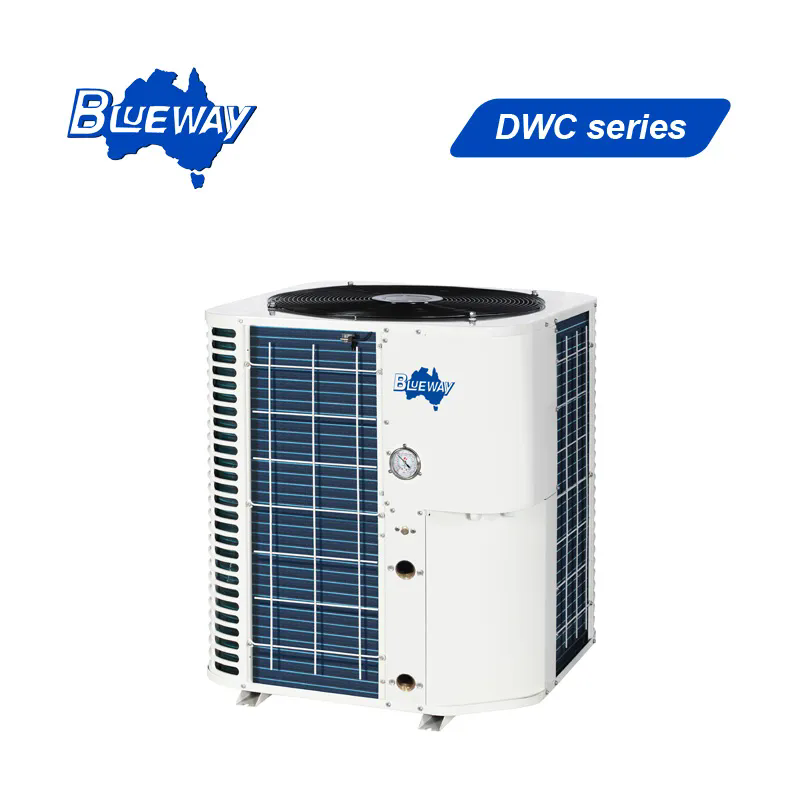What Makes a Heat Pump a Smart Choice for Home Heating and Cooling?
2024-11-21
When it comes to home climate control, most people immediately think of traditional heating methods like furnaces or air conditioning for cooling. However, there is an increasingly popular alternative that combines both functions in one system— the heat pump. But what exactly is a heat pump, and why is it becoming a go-to solution for many homeowners looking to maintain comfort while reducing energy costs?
In this blog, we’ll dive into the benefits, functionality, and reasons why a heat pump might be the smartest choice for your home heating and cooling needs.
What is a Heat Pump and How Does it Work?
A heat pump is a versatile HVAC (heating, ventilation, and air conditioning) system that can both heat and cool your home. It works by transferring heat rather than generating it. In the winter, a heat pump extracts heat from the outdoor air (even when it’s cold) and pumps it indoors to heat your home. In the summer, the process is reversed— the heat pump removes heat from inside your home and releases it outdoors, acting as an air conditioner.
Unlike traditional heating systems, such as furnaces or electric heaters, which rely on burning fuel or using electrical resistance to generate heat, heat pumps are much more energy-efficient. They use electricity to move heat from one place to another, making them an environmentally friendly option as well.
Why Should You Consider a Heat Pump for Your Home?
1. Energy Efficiency
One of the biggest advantages of heat pumps is their energy efficiency. Traditional heating systems, such as electric heaters or gas furnaces, often generate heat by burning fuel or converting electricity, which can be costly and inefficient. In contrast, heat pumps move heat rather than generate it, making them much more efficient.
For example, for every unit of electricity used, a heat pump can move 3 to 4 times as much heat, meaning it delivers more heating or cooling for less energy. This not only lowers your energy bills but also reduces your home’s carbon footprint, making it a more sustainable choice in the long run.
2. Dual Functionality: Heating and Cooling
A heat pump offers the convenience of both heating and cooling with a single system. In colder months, it operates as a heater, drawing warmth from the outside air to keep your home cozy. In the warmer months, it reverses the process, acting as an air conditioner to cool the indoor air. This dual functionality eliminates the need for separate systems for heating and cooling, saving you both space and money.
3. Consistent Comfort
Unlike some traditional heating systems that can produce uneven temperatures, heat pumps deliver consistent and even warmth throughout the home. The way they operate allows for a steady flow of air, keeping every room at a uniform temperature. This helps avoid the cold spots or overheating that can sometimes occur with other methods of home heating and cooling.
4. Lower Operating Costs
Since heat pumps are so efficient, they can help homeowners save money on energy bills over time. Although the upfront cost of installing a heat pump may be higher than traditional systems, the savings in energy consumption can quickly offset this initial investment. Many homeowners find that their energy bills drop significantly once they switch to a heat pump, making it a financially beneficial choice in the long run.
5. Environmentally Friendly
Heat pumps are an eco-friendly option because they use renewable energy— the heat present in the outdoor air, ground, or water. Since they don’t rely on burning fossil fuels, they emit far fewer greenhouse gases compared to traditional heating methods like gas or oil furnaces. This makes heat pumps a more sustainable choice for those looking to reduce their environmental impact and move towards greener home solutions.
Are There Any Limitations to Heat Pumps?
While heat pumps offer numerous advantages, they are not without their limitations. Here are a few factors to consider before installing one in your home:
1. Climate Suitability
Heat pumps are most effective in moderate climates. In extremely cold areas, the efficiency of air-source heat pumps can decrease as the outdoor temperature drops, as there is less ambient heat to extract from the air. However, ground-source heat pumps (also known as geothermal heat pumps) are less affected by external temperatures because they extract heat from the earth, which maintains a more consistent temperature year-round.
2. Initial Installation Cost
Although heat pumps can save you money in the long run due to their energy efficiency, the upfront cost of purchasing and installing a heat pump system can be higher than that of a traditional furnace or air conditioner. It’s important to factor in both the installation costs and the potential energy savings when deciding if a heat pump is the right investment for your home.
3. Maintenance Requirements
Like any HVAC system, heat pumps require regular maintenance to keep running efficiently. This includes cleaning filters, checking refrigerant levels, and inspecting the system for wear and tear. While maintenance is not overly complicated, it’s essential to have it professionally serviced to ensure longevity and optimal performance.
How Do You Choose the Right Heat Pump for Your Home?
If you decide that a heat pump is the right choice for your home, there are several factors to consider when selecting the best system:
1. Type of Heat Pump
Heat pumps come in different types, including air-source, ground-source (geothermal), and water-source heat pumps. The choice will depend on your home’s size, climate, and budget. Air-source heat pumps are the most common and typically the least expensive to install, but if you live in a region with extreme temperatures, a ground-source heat pump may offer better efficiency.
2. Size and Capacity
Just like with any HVAC system, the size of the heat pump matters. A unit that is too small won’t adequately heat or cool your space, while one that’s too large will be inefficient and costly to operate. It’s important to have a professional perform a load calculation to determine the correct size for your home.
3. Energy Efficiency Rating
When shopping for a heat pump, look for one with a high energy-efficiency rating. The higher the Seasonal Energy Efficiency Ratio (SEER) and Heating Seasonal Performance Factor (HSPF), the more efficient the system will be. Choosing a model with a higher efficiency rating can help reduce long-term energy costs.
4. Installation Professional
Proper installation is key to ensuring that your heat pump operates efficiently. Be sure to hire a qualified technician to install the system and conduct any necessary maintenance. An experienced professional will ensure the system is set up correctly and functions as expected.
Conclusion: Is a Heat Pump Right for You?
In summary, heat pumps are a smart choice for homeowners seeking an energy-efficient, environmentally friendly, and cost-effective way to heat and cool their homes. With their dual functionality, consistent comfort, and lower operating costs, they can provide long-term benefits for both your wallet and the environment. However, before making the switch, consider the climate in your area, installation costs, and system maintenance needs to ensure that a heat pump is the right fit for your home. With the right planning and investment, a heat pump can be an excellent addition to your home’s HVAC system.



